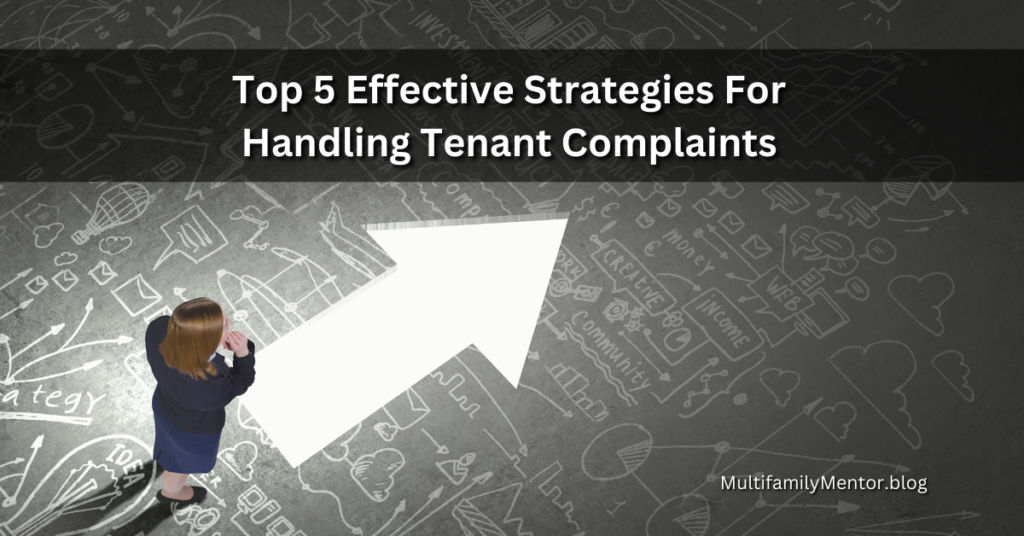Learn effective strategies for handling tenant complaints and maintaining positive relationships with your tenants.
Executive Summary
As a property manager, one of your most important responsibilities is ensuring your tenants are satisfied with their living conditions. Tenant complaints can arise from a variety of issues, such as maintenance problems, noisy neighbors, or issues with the lease agreement. Handling these complaints effectively can prevent a small issue from turning into a major problem, and can help to maintain positive relationships with your tenants.
Introduction
As a property manager, receiving tenant complaints can be frustrating and time-consuming. However, it is important to remember that addressing these complaints is a crucial part of your job. If tenants feel that their complaints are not being taken seriously, they may become dissatisfied and eventually move out, causing you to lose valuable tenants and revenue. By following the tips and strategies outlined in this article, you can effectively handle tenant complaints and ensure that your tenants are satisfied with their living conditions.
Understanding Tenant Complaints
Before you can effectively handle tenant complaints, it is important to understand what causes them. Here are 4 important pieces of information to consider:
- Tenants may feel that their complaints are not being taken seriously, causing them to become dissatisfied with their living conditions.
- Complaints may arise from issues with the lease agreement, such as rent increases or violations of the lease terms.
- Maintenance problems, such as a broken appliance or a leaky faucet, can cause frustration and lead to complaints.
- Noisy neighbors or other disturbances can also lead to tenant complaints.
Setting Up An Effective Complaint System
Having an effective complaint system in place can help to ensure that tenant complaints are addressed in a timely and efficient manner. Here are 6 important pieces of information to consider:
- Provide tenants with a clear and easy-to-understand process for submitting complaints.
- Assign a staff member or team to handle complaints and ensure that they are being addressed promptly.
- Implement a tracking system to monitor the progress of each complaint.
- Provide regular updates to tenants regarding the status of their complaints.
- Encourage tenants to provide feedback on the complaint process and make adjustments as necessary.
- Consider using an online portal for submitting and tracking complaints.
Dealing with Specific Types of Complaints
Different types of complaints may require different approaches. Here are 5 important pieces of information to consider when dealing with specific types of complaints:
- Maintenance problems: Respond promptly to maintenance requests and keep tenants informed about the progress of the repairs.
- Noise complaints: Investigate the source of the noise and take appropriate action, such as contacting the noisy neighbor or enforcing quiet hours.
- Pest problems: Hire a professional pest control service to address the issue and take preventative measures to avoid future infestations.
- Lease agreement disputes: Carefully review the lease agreement and ensure that you are complying with all terms. If necessary, consult with a lawyer to resolve any disputes.
- Safety concerns: Take all safety concerns seriously and take appropriate action to address them, such as installing new locks or improving lighting.
Handling Difficult Tenants
Dealing with difficult tenants can be challenging, but it is important to remain professional and handle the situation with care. Here are 5 important pieces of information to consider:
- Listen carefully to the tenant's complaints and try to understand their perspective.
- Remain calm and professional, even if the tenant becomes angry or hostile.
- Clearly communicate the steps you will take to address the complaint and follow through on your promises.
- Set clear boundaries and enforce them if necessary, such as reminding the tenant of lease terms or asking them to refrain from harassing behavior.
- If the situation becomes unmanageable, consider seeking legal advice or involving law enforcement.
Preventing Future Complaints
Preventing future complaints can save time and resources in the long run. Here are 4 important pieces of information to consider:
- Regularly inspect and maintain the property to address any potential issues before they become complaints.
- Keep tenants informed about any changes or updates to the property, such as renovations or new amenities.
- Encourage open communication between tenants and staff to address any issues before they escalate.
- Address any underlying issues that may be causing frequent complaints, such as ineffective management or poor communication.
Conclusion
Handling tenant complaints can be challenging, but it is an important part of your role as a property manager. By understanding the causes of complaints, setting up an effective complaint system, addressing specific types of complaints, handling difficult tenants, and preventing future complaints, you can ensure that your tenants are satisfied with their living conditions and maintain positive relationships with them.

